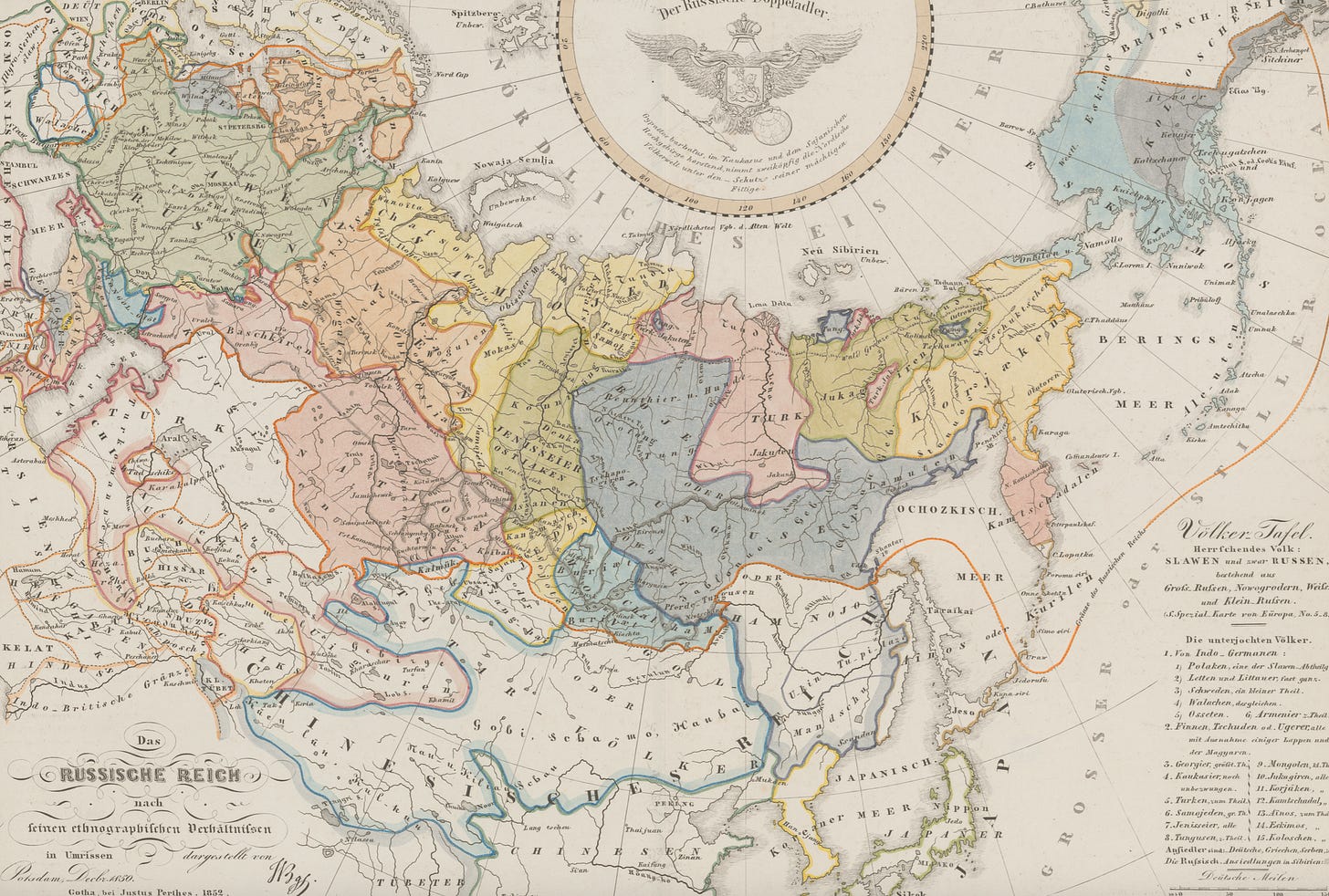Week signals: What Putin wants
Plus: watch points for Ukraine, sectoral tariffs, China, Bosnia, and the Congo.

Hello,
In this week’s edition of Week Signals:
IN REVIEW. Ukraine, Russia's near abroad, and the global order.
UP AHEAD. A meeting in Alaska, tariffs and truces, Dodik and the DRC.
And don’t forget to connect with me on LinkedIn.
Week Signals is the Saturday note for clients of Geopolitical Strategy, also available to GD Professional subscribers on Geopolitical Dispatch.
The Week in Review: New rules for Russia
The week began with the announcement that Steve Witkoff was off to Moscow. The week ended with news that Vladimir Putin would visit Alaska. The week's flurry of US-Russian diplomacy – to end the war in Ukraine but possibly more – was just one of several key events, ranging from Israel's decision to go into Gaza City, to putative peace deals in Cambodia and the Caucasus, to Stephen Miran's nomination to a vacancy on the Fed's board of governors. Still, it was likely the most consequential.
In covering this, we've naturally focused on Donald Trump's motivations and interests. For better or worse, the US remains the hyperpower, or at least the hype power, in the process of global re-ordering. Despite his apparent disinterest in foreign wars, like previous US presidents, he has spent much of his time mired in them. And despite an almost hyperactive range of policies on tariffs, the border, spending, executive authority, federal-state relations, higher education, and more, he may come to be defined by foreign wars, just as his predecessors did too.
Yet in the case of the Ukraine-Russia war at least, one man is more central to the outcome than Trump: its protagonist, Vladimir Putin. Throughout the conflict, it’s been at times difficult to discern what Trump wants – whether simply peace in 24 hours, or something more – but it’s been even harder to know what it is that Putin wants.
On the face of it, his aims have been consistent and enshrined in Russian law (a not untrivial factor in Russia’s legalistic tradition): the “denazification” of Ukraine, its enshrined neutrality, a buffer zone along the Russian border, and, most importantly, the expansion of that border to incorporate four Ukrainian oblasts in addition to Crimea: Donetsk, Kherson, Luhansk and Zaporizhzhia.
The template, it seems, would thus be set for Trump to strike a deal when he and Putin meet next week in Alaska. The Wall Street Journal has suggested that this is what was relayed to Steve Witkoff last week, encouraging Trump to delay his threatened secondary tariffs on Russian oil, with the exception of additional 25% duties to apply to India later this month.
Yet anyone who has observed Putin over the past several decades would know that his word is not necessarily his bond. And the very setting of Alaska, a former Russian territory that some irredentists want back (not that Trump himself isn’t partial to Arctic claims), is a somewhat ominous reminder of Catherine the Great’s dictum: "I have no way to defend my borders but to extend them".
Much has been written about Putin’s motivations as a man, ranging from the vengeful to the mystic. Yet, unlike Xi Jinping, who has written (or ghostwritten), now five volumes of personal philosophy, not to mention Trump, who has not only had 15 seasons of The Apprentice to parse but five decades of being outrageous in the public eye, Putin – an ex-KGB officer – has been a little more circumspect.
The best way to understand him, therefore, is to understand Russia. All leaders are, to an extent, prisoners of their geography, to paraphrase British author Tim Marshall. And Russia has more geography than anyone. All Russian leaders, from the Romanovs to the Soviets, have had the same basic incentives and constraints. Lacking natural borders and warm-water ports, they need to probe outwards. Lacking Western Europe’s relatively temperate climate, and avoiding most of the cultural, economic and scientific changes of the 17th to 19th centuries, they have also faced an entirely different social contract. And while we should avoid the dangers of historical and geographical determinism in explaining this away (as indeed have many Russians), there’s a reason why Russia – despite the post-Cold War hopes of the Yeltsin era – never became just a bigger version of France: nuclear-armed, proud of its history, but nonetheless peaceable and ensconced in the West.
So, will Putin settle for eastern Ukraine, or will he continue to carve out the sphere of influence lost in 1989? Will whoever comes next continue his revanchism or instead seek a more “normal” and democratic country? Is Russia, culturally European but geographically Asian, doomed to stay hostile to the West? Will its poor demographics lead it to become a tributary of China? How should businesses and investors think about Putin’s Russia over the coming year and decade? What are the additional rules of thumb you need to know?


